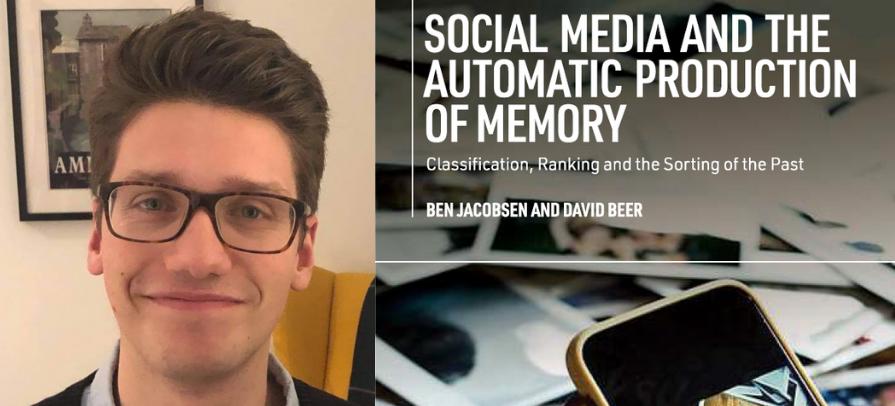Benjamin N. Jacobsen vart ph.d. í York
Fríggjadagin 18. desember vardi Benjamin N. Jacobsen ph.d.-ritgerð sína við Department of Sociology, University of York. Granskingin snýr seg um, hvørja ávirkan sosialir miðlar og algoritmur hava á minnið hjá fólki. Ritgerðin kallast “Mediated Memories in the Age of the Algorithm”.
Vegleiðarar hava verið David Beer, professari, og Daryl Martin, Dr.
Verjan fór fram á netinum og gekk væl. Ritgerðin varð góðkend við smáum rættingum.
Ein partur av granskingini er almannakunngjørdur í grein í tíðarritinum Information, Communication & Society: "Algorithms and the narration of past selves"
Ein bók er eisini ávegis, sum Benjamin Jacobsen og vegleiðarin David Beer, professari, hava skrivað.
Heitið er “Social Media and the Automatic Production of Memory: Classification, Ranking and the Sorting of the Past”. Hon kemur út í apríl 2021 á Bristol University Press.
Sí meira um Benjamin Jacobsen í Heilagrunninum
Samandráttur av verkætlanini
The research project is titled ‘Mediated Memories in the Age of the Algorithm’, and it examines the intersection between algorithms and memory. The research aims to contribute to a better understanding of how algorithms impact us and intervene in our everyday lives, especially in relation to how we remember our personal and collective pasts. It is guided by two overarching questions:
1) to what extent do algorithms affect our personal remembrances of things?
2) what are the social implications of algorithms mediating online memories?
The area of research is vital for various reasons. One reason is that even though algorithmic mediations of memory have become increasingly everyday, mundane, and widely diffused in society, the phenomenon has remained virtually unresearched. Another is that remembering is never a strictly personal set of enactments but is a crucial element of the social fabric. The melding of algorithmic processes and memory raises problematic questions concerning identity, sociality, and power: why are some things remembered and some things forgotten? Who or what decides what is to be remembered? What is to be forgotten and when? How are memories classified, and How are they sustained? The project contends that, given the increasing entanglement between algorithmic processes and people’s personal memories, there is still a need to examine the extent of the social power of algorithms in everyday life.
